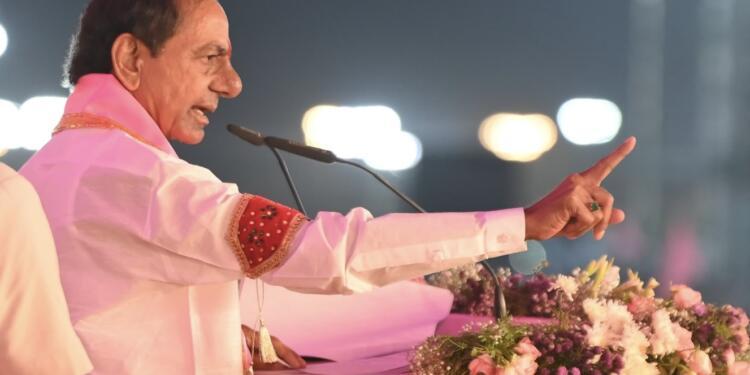The Bharat Rashtra Samithi (BRS), once the unchallenged political powerhouse of Telangana, is now grappling with a deep internal crisis that threatens to fracture the party from within. At the center of this storm are the children of BRS founder and former Chief Minister K. Chandrashekar Rao (KCR), KT Rama Rao (KTR), the party’s working president, and Kalvakuntla Kavitha, a former MP and prominent face of the party.
What initially appeared to be private family disagreements has now erupted into a full-blown political battle for control over the legacy KCR built. As the BRS struggles to stay relevant after its defeat in the 2023 Assembly elections, the internal feud among the Rao siblings is casting long shadows on the party’s future.
The ongoing strife became public when Kavitha, recently released on bail after her arrest in connection with the Delhi excise policy case, openly accused her brother KTR of sidelining her from party affairs. She alleged that during her incarceration, there were backchannel efforts—possibly initiated by KTR—to merge BRS with the Bharatiya Janata Party. These claims, though unsubstantiated, sent ripples through the party ranks.
Kavitha also criticized the leadership’s silence in the face of widespread rumors about her potential defection to Congress. According to her, these rumors were allowed to fester while similar speculation around other leaders like Finance Minister Harish Rao (KCR’s nephew) was quickly quelled. The message, she implied, was clear: certain figures in the party were being selectively undermined.
Power, Perception, and the Politics of Succession
Behind the public drama lies a deeper issue—succession and control. Following the BRS’s defeat to the Congress in the 2023 state elections, KCR has receded from the spotlight, taking what appears to be a backseat in day-to-day political activity. This has created a vacuum at the top, intensifying the jostle for leadership between KTR, Kavitha, and Harish Rao.
While KTR was long seen as KCR’s political heir apparent—articulate, media-savvy, and internationally visible—he is often viewed as distant from grassroots realities. Harish Rao, in contrast, is perceived as a seasoned organizer with deep rural support and administrative experience. Kavitha, once projected as a future face of the party, feels increasingly isolated. These contrasting profiles have not only divided the leadership but also fragmented the party’s cadre, who are unsure of whom to follow.
The infighting has begun to erode the foundation of the BRS. Party leaders and workers are openly expressing dissatisfaction with the central leadership’s lack of cohesion. There are visible cracks between those loyal to KTR, those aligned with Harish Rao, and a smaller but vocal faction supporting Kavitha.
With a rejuvenated Congress party in power in Telangana, the BRS can ill afford such internal instability. Moreover, the BJP continues to court disillusioned BRS leaders, and rumors of defections persist.
The perception of the BRS as a family-run party is also contributing to the damage. What began as a Telangana movement-led political force is now being criticized for being mired in dynastic politics, devoid of a coherent vision post-statehood.
What’s at Stake
The BRS isn’t just facing a leadership crisis—it’s grappling with an existential one. Several pressing questions remain unresolved:
Can the party reinvent itself beyond the KCR legacy?
Will a consensus candidate emerge to unify the warring factions?
Or will the BRS suffer a slow disintegration as its leaders fight among themselves?
At the core of this conflict lies a generational and ideological struggle. KCR’s political model relied on strong central control, populist welfare schemes, and a singular focus on Telangana statehood. That era is over. The BRS now needs a clear strategy to stay relevant in a competitive multiparty state where identity politics is giving way to development and governance debates.
The Rao siblings’ conflict is symptomatic of a party in transition. While personal ambitions and familial disputes have certainly fueled the crisis, the larger issue is the BRS’s inability to define its post-KCR identity. Unless the leadership finds a way to restore unity and reinvigorate its organizational base, the BRS risks becoming a footnote in Telangana’s political history—outflanked by Congress, encroached upon by BJP, and betrayed by its own internal disunity.
What happens next will determine whether BRS can stage a comeback or fade into irrelevance, torn apart not by its enemies, but from within.




















